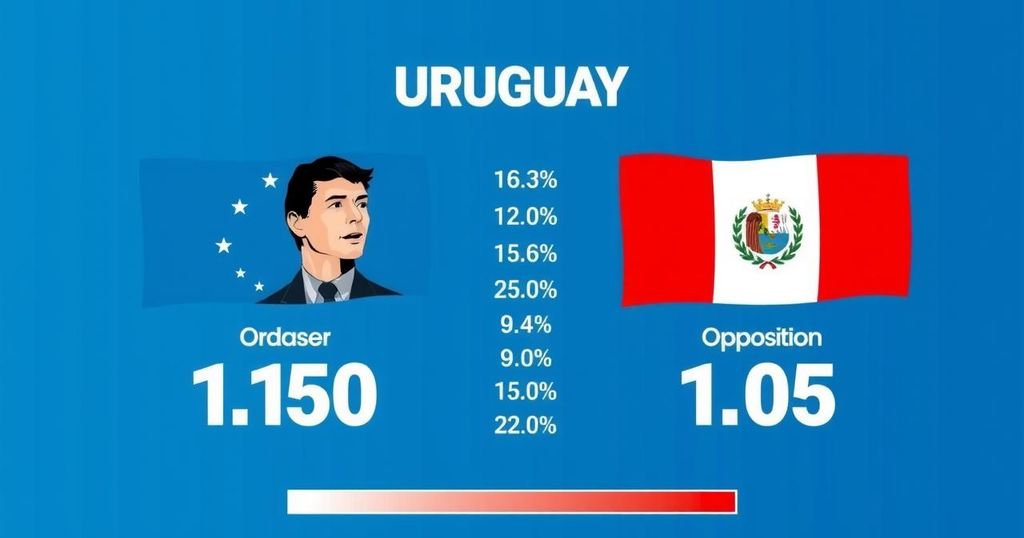Uruguay’s presidential election has proceeded to a close runoff featuring Álvaro Delgado of the ruling coalition and Yamandú Orsi from the Broad Front. The race is competitive, with many voters remaining undecided, a reflection of low enthusiasm and pervasive issues such as rising crime and economic policy. Both candidates have expressed a commitment to cooperation regardless of the electoral outcome.
Uruguay is currently witnessing a highly competitive presidential election as voters head to the polls for the second round, following a first round that yielded no outright winner. Vying for the presidency are the governing coalition’s candidate, Álvaro Delgado, and the opposition led by Yamandú Orsi of the Broad Front. The previous election indicated a divided Congress, with both candidates showing strong support yet facing a significant number of undecided voters, suggesting low enthusiasm compared to previous years.
Delgado, representing the conservative National Party, faces challenges due to a history of corruption allegations against the outgoing President, Luis Lacalle Pou, despite the government enjoying favorable economic indicators. Orsi, on the other hand, presents himself as a continuity of former President José Mujica’s progressive legacy, advocating for social reforms while promising to stimulate investment despite prior electoral rejections of ambitious economic proposals. The candidates have been focusing on issues surrounding social welfare and public safety, which resonate amid rising crime rates.
As electoral officials prepare for results, there lies the potential for an extended counting process, should the results remain marginally close. Surprisingly, both candidates have pledged unity, emphasizing a collaborative government ethos if elected, highlighting the political culture of Uruguay characterized by institutional respect and governance stability.
The backdrop to this election is significant as it follows a tense first round where neither of the leading candidates managed to achieve a majority. Álvaro Delgado emerged with 27% of the vote while Yamandú Orsi garnered 44%, amidst the backdrop of a multi-party coalition government that has ruled since 2020. The socio-economic climate has compelled voters to remain engaged over concerns such as public safety, welfare spending, and economic growth. Past elections have demonstrated a tendency for delayed results in closely contested races, with recent polls suggesting an increasing voter indecision due to the candidates’ ability to connect with the electorate.
In conclusion, Uruguay’s electoral landscape remains volatile as both candidates, Delgado and Orsi, vie for leadership amid a backdrop of economic challenges and societal concerns. The strong voter indecision observed reflects a broader sentiment of apathy towards the candidates’ platforms. Yet, both aspirants profess a commitment to unity that may enhance political cooperation post-election. The upcoming announcement of election results will be crucial in determining the direction of Uruguay’s governance going forward.
Original Source: gazette.com






